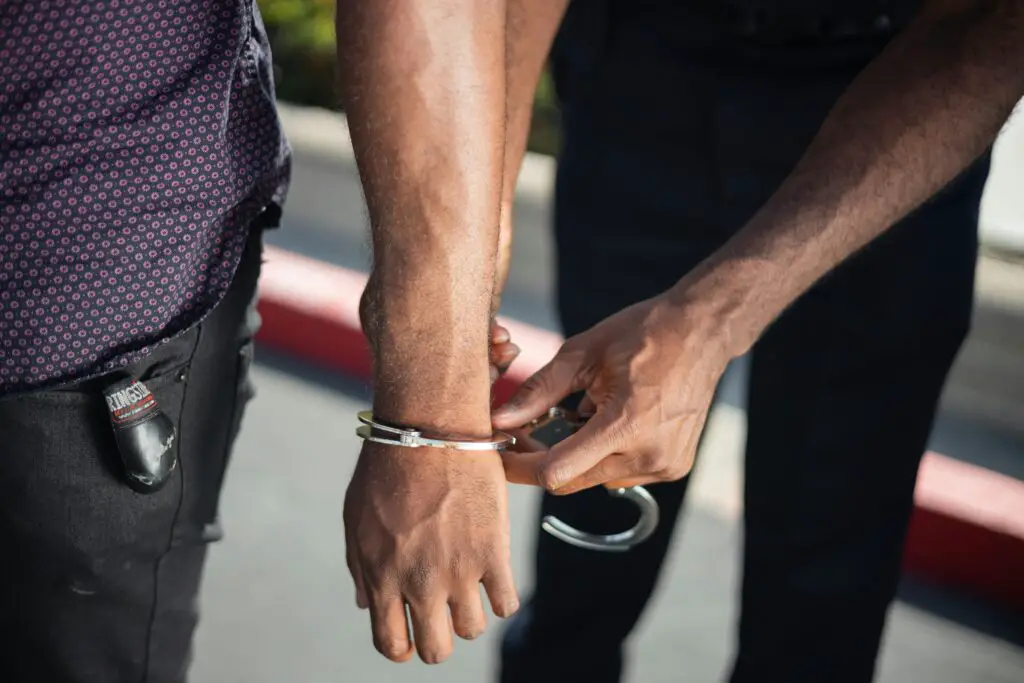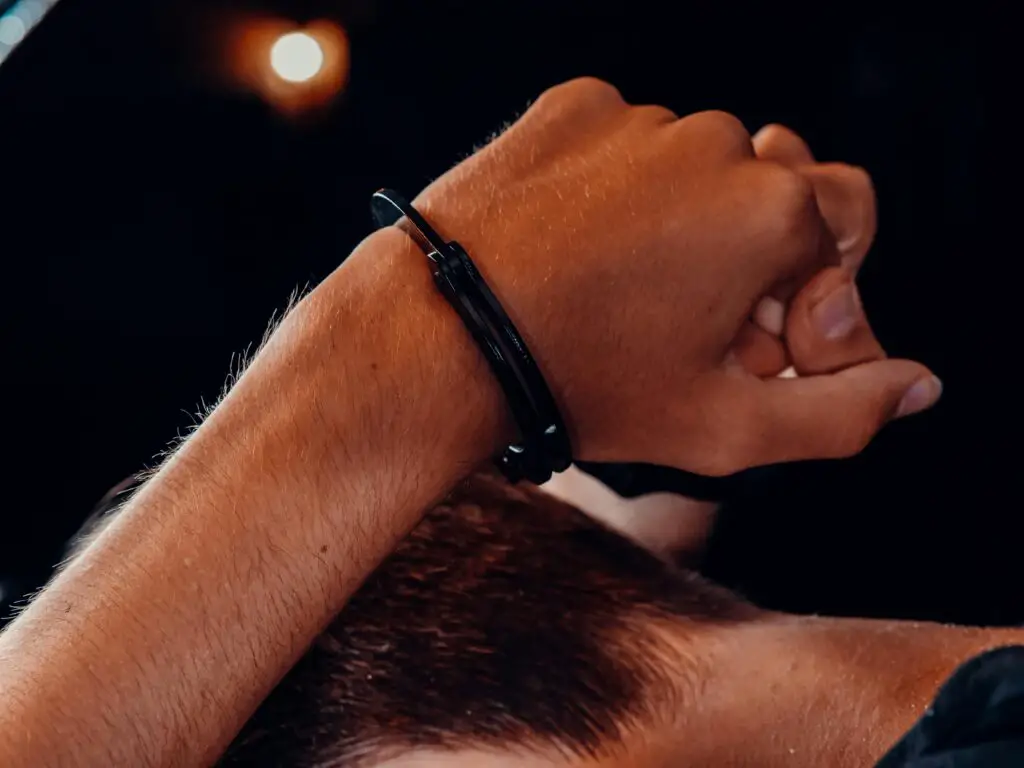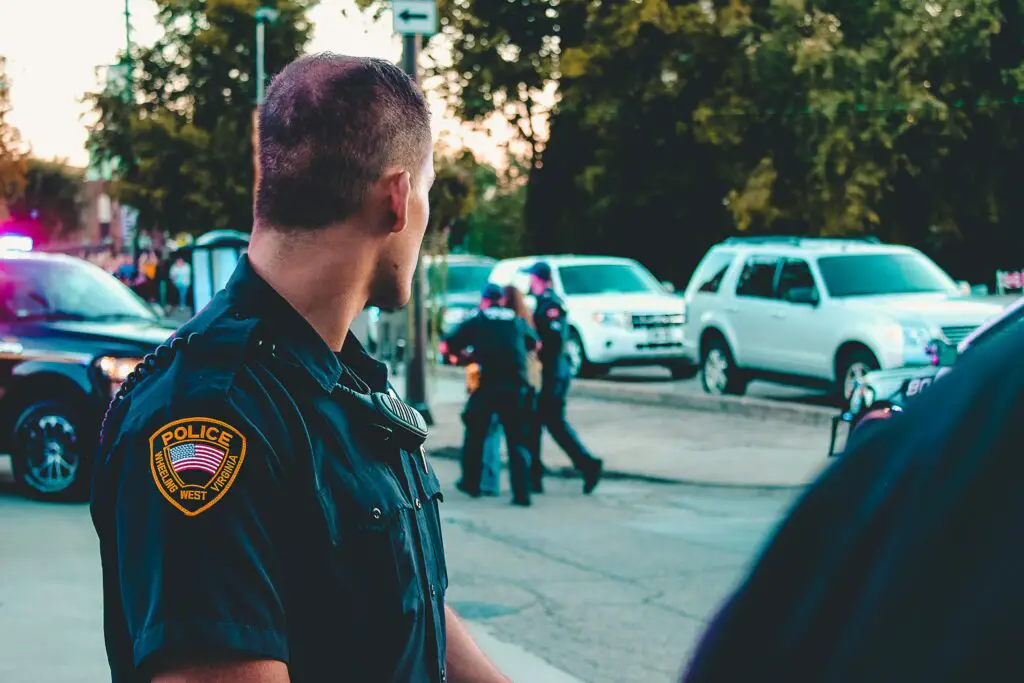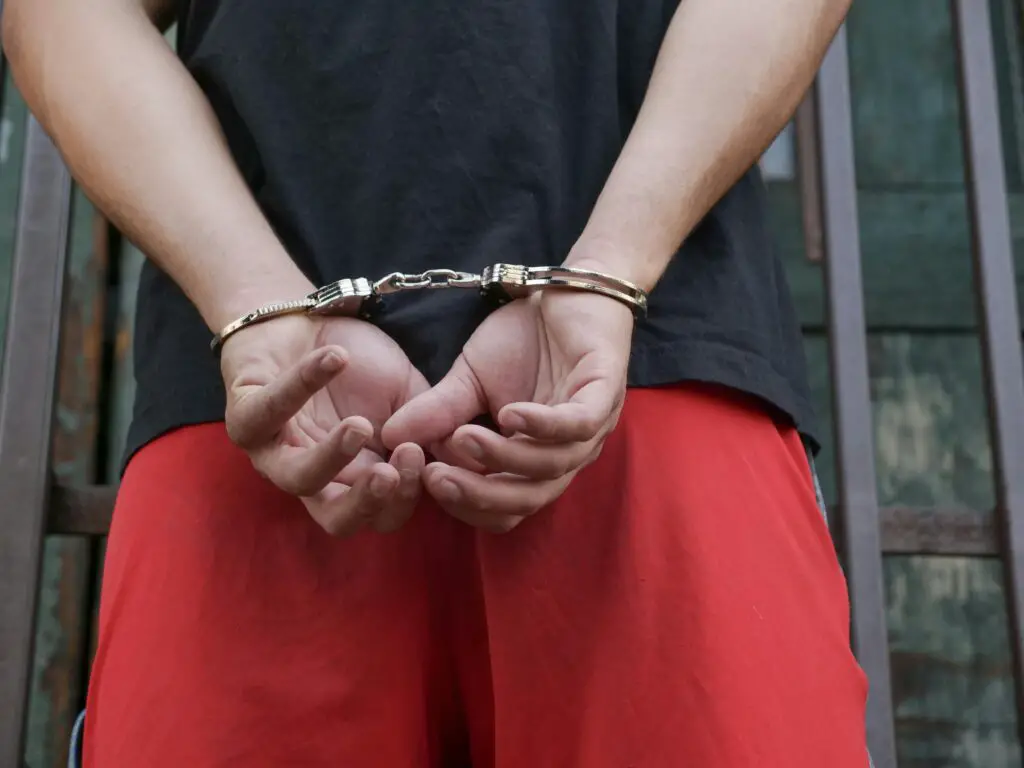In our current social climate, the presence of police activity can be alarming. From public arrests to situations involving police brutality, the topic of police is polarizing. Police activity can become especially troubling when children face criminal charges. So, when children are involved, many wonder if authorities can arrest kids.
NYC Cop Arrests Kid In Public
In a recent release of first-person footage, a New York police officer arrests a young girl forcefully. The girl had supposedly been selling fruit illegally in the park with her mother. A crowd of people surround the officer, yelling and pleading for him to stop.
He doesn’t respond to the pleading audience. His grip tightens as he continues to drag the girl across the sidewalk. The crowd desperately tries to fight the cop, also grabbing onto the girl to try and rip her away from him. The struggle gets so intense that the officer rolls and falls over the girl.
Although it doesn’t show clearly in the clip, the girl was able to escape the grip of the officer. According to other sources, the girl got away, but her mother faced an arrest for her illegal sales operation.
When Can The Police Arrest You?

Contrary to popular depictions, police can’t arrest someone simply because they want to. Police departments follow strict rules that officers must meet before making an arrest. Authorities enforce these rules carefully, especially when civilians file lawsuits or formal complaints.
In public spaces, police officers can walk up to people and ask questions. Unless there is an active crime occurring or reasonable suspicion that warrants further action, no one has to stay for questioning. For instance, you can politely walk away if an officer asks you random questions without the proper evidence or intent to perform an arrest.
If things escalate past questioning, cops can make arrests for a few specific reasons:
- If they have a warrant. Police officers can legally arrest someone if they have a proper warrant authorized by a judge. Unless external circumstances arise, officers generally require a warrant for all arrests made in private residences.
- If they have observed a crime. An officer can perform an arrest if they have witnessed a crime in person. For instance, an officer who witnesses an assault or a drunk driver can legally initiate an arrest.
- If there is probable cause. If the officer has probable cause or a warranted belief that a crime has occurred, they can perform an arrest. Definitions of probable cause can differ, although most departments require some form of tangible evidence or irrefutable knowledge.
Aside from these reasons, police cannot arrest people out of the blue. However, do these rules apply to juveniles? Can kids be legally detained?
Can Kids Be Arrested?

Yes. Kids can be arrested legally in a variety of circumstances. Like adults, kids must follow the laws and regulations that govern society. They also receive the same rights and services as adults during an arrest. Most jurisdictions impose special rules to regulate how authorities arrest children.
Officers can arrest kids with probable cause or directly witness a crime. Some adults or officers with closer relationships with children may require less evidence to search or arrest. For instance, school officials and campus officers usually only require reasonable suspicion to form a stop and search. Like most rules, these can vary and are usually set and determined by the institutions where they apply.
If a child is arrested, they receive the same rights and services as adults. For instance, officers must read kids their Miranda Rights and respect their Fourth and Fifth Amendment rights.
The difference with most juvenile arrests lies in what happens after the initial search and detainment. While officers typically “book” adults and bring them to the station or jail, they have more flexibility with kids. Many departments require additional measures for juveniles, such as notifying their parents before questioning or after an arrest.
In many cases, police officers opt for alternatives to arresting kids as a warning gesture. Few officers seek to arrest children unless the situation is extremely serious. Some other options that police may utilize include:
- Calling the child’s parents and returning them home with a warning.
- Issuing the child a stern warning and conversation before letting them go.
- Taking the child back to the station to wait for their parents to pick them up.
Was the Cop In The Video Justified?

News reports related to the incident confirm that the mother and daughter were illegally selling foods that could be unsafe for the general public. According to the police and the state mayor, they had previously issued warnings instead of making an arrest, but those warnings were not enough to deter them.
In many states across the U.S., it is legal to put children in handcuffs when they are under lawful arrest. As shown in the video and described by news sources, both the mother and daughter were breaking the law for an arrestable offense.
The officer’s arrest was lawful since restraining someone during an arrest falls within their rights. Although the girl managed to escape, authorities did not bring formal charges against her. Given the circumstances of the crime, the officer’s use of force and restraint was responsible and justified.
The case would be different if the officer had used an unjustifiable amount of force not warranted by the situation. In such cases, victims should seek legal professionals to help them recover damages and gain proper knowledge of their rights.

